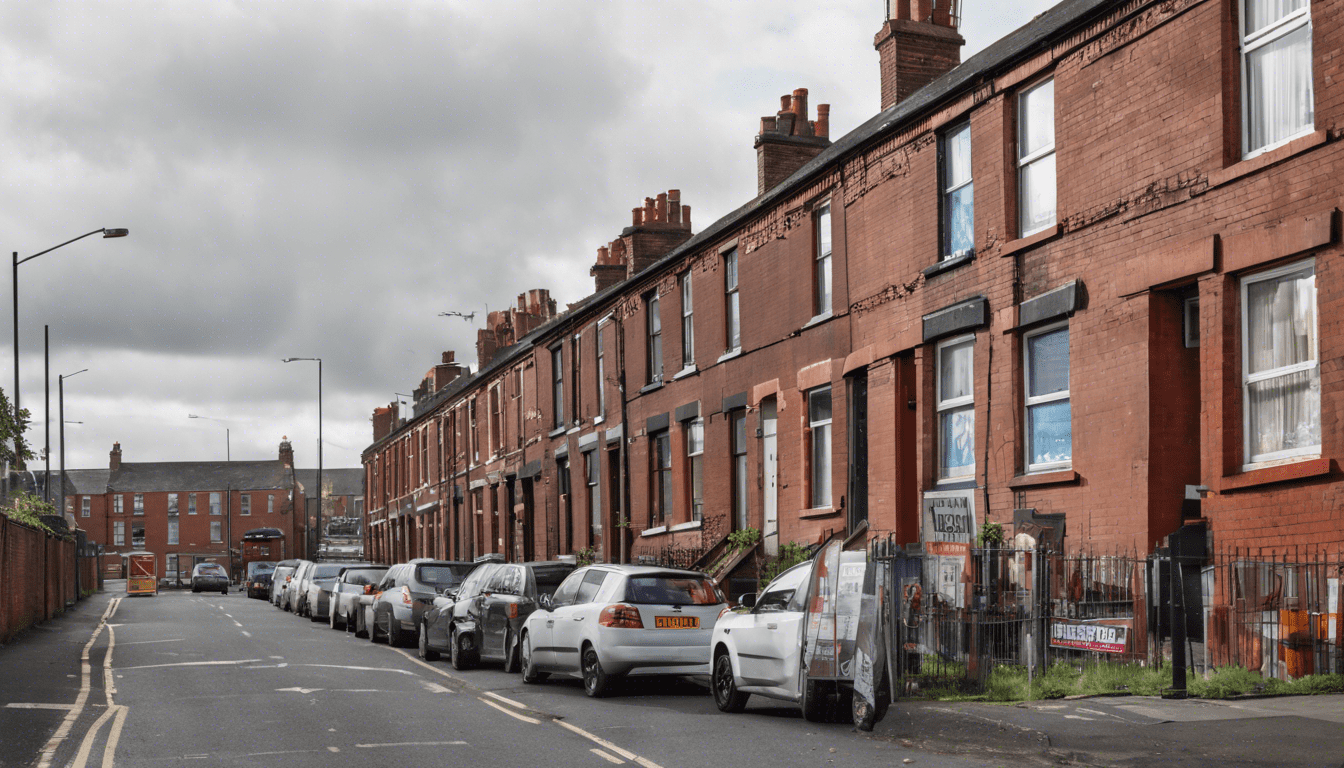The ongoing controversy surrounding Houses of Multiple Occupation (HMOs) in North Belfast has taken another turn, as the Belfast City Council has denied a second application for the conversion of a residential property on Ponsonby Avenue into an HMO within just six months. This latest decision directly follows extensive local opposition, predominantly led by Sinn Féin, despite council officers recommending approval. The refusal of this application is emblematic of a growing trend in the area, with four HMO applications having been rejected this year alone.
Critics argue that the proliferation of HMOs fosters community decline and tends to exacerbate anti-social behavior, notably highlighted in neighborhoods such as the Holylands and Stranmillis, notorious for their high concentration of student accommodations. The upsurge in HMO license applications in North Belfast has been under rigorous examination to ensure compliance with council policies that cap HMOs at 20% in certain locales and 10% in targeted areas, including Ponsonby Avenue.
Despite a planning report asserting that the new HMO would likely not disrupt the amenity space and provide access to nearby Alexandra Park, significant local dissent was articulated through 18 objections from residents. Concerns covered a wide range of issues, including parking difficulties, traffic safety, noise pollution, waste management issues, and fears regarding the potential loss of family homes in the community, alongside apprehensions regarding the impact on community character from a shift towards more transient populations. This is not the first time such an application has been at the center of contention, as another on Ponsonby Avenue faced similar rejection earlier in April.
Key Takeaways
- Belfast City Council has denied multiple HMO conversion applications in North Belfast amidst community pushback.
- Community concerns focus on issues like noise, parking, and the impact on local family housing.
- The controversy reflects a broader trend of rising objections to HMO developments and their effects on neighborhood character.
Overview of HMO Development in North Belfast
In North Belfast, the bid to convert a house on Ponsonby Avenue into a House of Multiple Occupation (HMO) has faced its second rejection within six months, according to the recent ruling by Belfast City Council. This ongoing situation has been significantly influenced by Sinn Féin, who are vocally opposing such conversions, despite backing from council officers that recommend approval. This decision aligns with a broader trend observed in the area; a total of four HMO applications have been denied in North Belfast this year alone (Belfast Live, 2024).
The controversy surrounding HMOs in parts of Belfast, especially in student-heavy districts like Holylands and Stranmillis, intensifies with rising applications for new HMO licenses. The local council’s policy, which restricts the number of HMOs to 20% in certain zones and 10% on others such as Ponsonby Avenue, is under strict scrutiny due to community concerns (Belfast Telegraph, 2024). A planning report accompanying the latest application highlighted that the HMO would not notably impact the existing amenity space and has reasonable access to Alexandra Park. However, local residents submitted 18 objections, citing major concerns about parking, traffic safety, noise pollution, and waste management, combined with fears regarding the potential loss of family homes and the changing character of the neighbourhood due to the transient lifestyle of HMO tenants (Irish News, 2024). This culture around the management of HMO applications reflects a growing apprehension regarding community integrity and sustainable living in North Belfast.
Community Concerns and Impacts of HMO Conversions
The repeated denials of HMO applications in North Belfast reflect deeper community tensions regarding the preservation of local neighborhoods. Many residents express frustration over the lack of affordable housing options, juxtaposed with the influx of multi-occupancy units that they argue compromise the family-oriented character of the area. Analysts suggest that the rise of HMOs alters not only the demographics of neighborhoods but also the socio-economic balance, often leading to increased demand for local services that may not be equipped to handle such changes (Belfast Live, 2024). Furthermore, local community groups are now advocating for a comprehensive review of existing HMO policies, aiming to establish a more balanced approach that ensures both the preservation of family homes and the provision of adequate housing for students and transient workers. Such discussions have moved beyond mere objections to specific applications, indicating a broader discourse about sustainable urban development and community resilience in a rapidly changing city (Irish News, 2024). This discourse is especially pertinent in North Belfast where diverse stakeholder interests collide, highlighting the need for empathetic urban planning that considers long-term community impacts.
Feel free to contact us via WhatsApp, social media, or email.
Always find the best rooms to rent & HMOs for sale in the UK at HMO Reporter.





